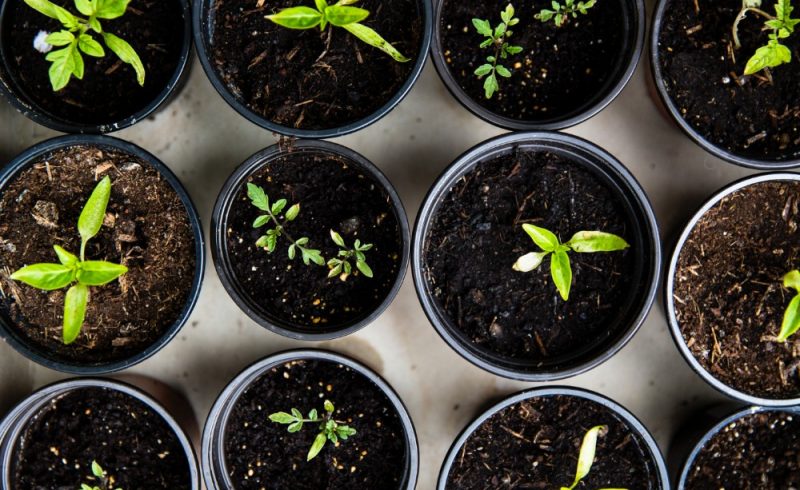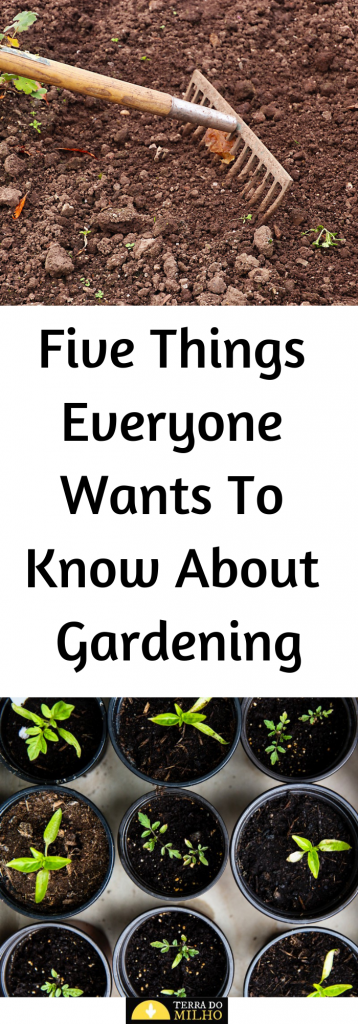
Photo by Markus Spiske on Unsplash
This is a guest blog written by Emma. Emma is a part-time property developer, part-time home improvements and gardening blogger at Fixtures and Flowers, and full time Mum.
What is in this blog?
Regardless of who you are, or the space you have; there’s a form of gardening that will suit you. Over the years, it has evolved significantly that even those who have insufficient space can take pride in their tiny gardens.
Any garden, big or small, can make any property more beautiful and bring tranquillity into your life. It also provides the perfect outlet for you to expend your energy and creativity. And if you’re into growing your food, it provides you with fresh and chemical-free produce whenever you need it.
However, gardening is not as straightforward as most people think. It takes a lot more than just planting and waiting for the best results. There’s a lot of things that you need to know about it which should come from studying and learning. What are these things, you ask?
Read on to find out.
What you want to grow in your garden depends entirely on you and a few factors. As mentioned earlier, your garden soil will play a significant role if your plants will thrive or not. Ideally, you need to know first what soil type you have before making a decision.
Once you have this information, you can either do some research online or ask experts about which plants are suitable for your garden space. In case you already have something in mind that is not compatible with your soil type, don’t worry.
There are many things that you can do to make your soil the right mix for your plant. Adding compost to your soil, for instance, is an excellent way to supply it with the nutrients needed by plants. As much as possible, stay away from using chemicals as they will only do more harm than good.
If you’re new to gardening, it’s recommended that you go with plants that don’t require as much attention as other varieties. Caring for succulents, for example, is so easy that even an inexperienced gardener will do just fine.
Lucky you if you were blessed with an ample garden space since you get to plant trees as well. These beautiful works of nature will significantly enhance your garden. Additionally, trees will keep you fresh during summer and warm during winter.
Trees, especially when they’re mature, may look as if they’re so tough and don’t need to be maintained. But the truth is quite the opposite. In fact, you should avoid the most common mistakes people make when taking care of their trees.
Make sure that you water them more compared to your smaller plants since they have bigger roots that grow deeper in the ground. Trees also need to be pruned regularly to keep them healthy and active. When you prune your trees, however, see to it that you do it correctly and at the right time.
As hard and as tall as they may be, trees are also prone to diseases just the same as any other plant. Never ignore signs such as dead branches, scabs on fruits (if you have a fruit-bearing tree), early loss of leaves, etc. If you suspect that your tree is sick, it’s advisable that you contact an expert immediately.
Having a clean and ‘perfect’ lawn is only possible if you dedicate a lot of time and effort in maintaining it. At least, that’s how it used to be before artificial grass found its way into residential areas.
The debate as to whether or not synthetic turf is good or bad for your garden is still ongoing. However, more and more people see that its benefits far outweigh the cons. After all, not everyone has the privilege of being hands-on in keeping their lawns in tip-top shape.
Artificial grass can be used not just in your garden — you can use it pretty much anywhere in the house. What’s great about it is that you can leave it be after installation. Your lawn – or wherever you decide to put it – will look as green and clean as you want it to be from day one, and for many years to come.
Gone will be the days of exhausting activities such as mowing, aerating, or raking your lawn. More importantly, you help yourself and the environment by reducing your carbon footprint. That said, the answer to the question at hand is a resounding yes!
Photo by Markus Spiske on Unsplash
If you want to be a successful gardener, it’s critical that you get to know the type of soil you have in your garden. Keep in mind that neither all garden soil nor plants are created equal. You cannot just grow whatever you want without knowing if your plants and soil are a perfect match or not.
When it comes to gardening, soil type is categorised as either loam, clay, chalky, peaty, sandy, or silty soil. Each type has its pros and cons relative to what you plan on growing. To make it simple, what grows well on sandy soil may not thrive in silty soil.
In most cases, however, your garden soil will be a mix of the different types. You should consider having your soil tested especially if you plan on taking gardening seriously. Doing so will provide you valuable information such as pH level, nutrient content, chemistry, etc.
Container gardening is perfect for you if you live in an apartment with insufficient space to work on. If this is the case, you don’t need to worry too much about the soil type. You can just purchase potting mixes that are appropriate to the plants you want to grow.
As much as possible, avoid using chemicals in your garden. If you have to, try to keep it to a minimum. Besides, there shouldn’t be a need for you to use chemicals as long as you take care of your garden well.
Chemical pest control products can be useful in dealing with threats to your precious garden. However, these things also come with significant risks of their own. Once pesticides find their way into the water that you drink, you’re putting not only you but your family’s health at risk. These chemicals can also kill beneficial insects such as honeybees which are essential for plants to survive.
Synthetic fertilisers are also not suitable for your garden as they can even kill beneficial microorganisms that help make it rich in nutrients needed by plants. Edible plants grown on soil with chemical fertilisers are not suitable for the health either when eaten.
Instead, practice non-chemical gardening at all times. Feed your soil and your plants only with organic munchies and homemade plant food. Doing so will also help your plants develop resistance to diseases. You can also introduce natural predators in your garden to help you eliminate problems with pests.
Pretty much, the things mentioned here are just the basics. There’s a lot of other things that you and any gardener need and want to know. Do yourself a favour and start gardening if you haven’t already. Don’t be afraid to fail because it’s normal. As with everything else in life, knowledge comes with experience and practice makes perfect.

About the author: Emma is a part-time property developer, part-time home improvements and gardening blogger at Fixtures and Flowers, and full time Mum. Her background in property development means Emma has a lot of advice to share on all things home, and she loves to explore gardens and gardening in her spare time.
Pin it for later

1 Comment
Thanks for the useful tips. I worry about the soil in my raised beds. They get replenished each spring with mushroom fertilizer and peat but I’ve noticed the texture has changed a great deal over time. After going to a gardening class and reading a post about chop and drop here on Monique’s blog I’ve started using that technique. I’m hoping that will help with both nutrients and soil composition in my beds and containers for plants. – Margy